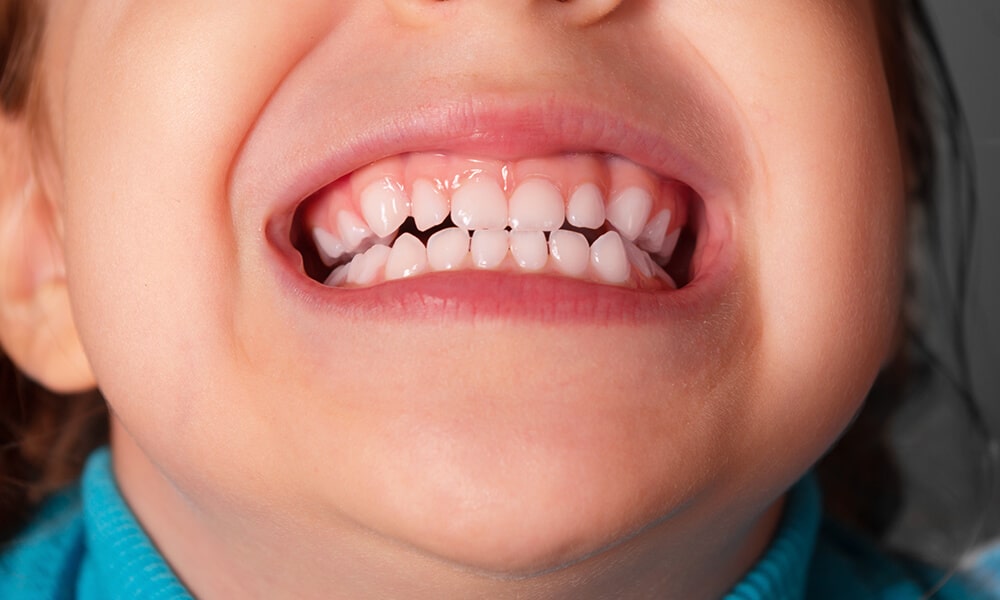The nitty gritty of teeth grinding
The official medical name for teeth grinding is bruxism. This general term refers to a condition where people gnash, grind, clench or grit their teeth, often while they are sleeping. Stress and anxiety, crooked teeth or an abnormal bite can all cause more frequent teeth grinding.
Children and adolescents have many changes in their oral development. Unlike you and I as adults, their “bite” also known as occlusion is constantly changing. Their mouths may be full of holes as they are losing primary (baby) teeth and new teeth are erupting into position. Teeth are shifting as new teeth develop below their primary teeth and as new ones come into place. It may be that constant shifting that makes them grind at night to find that “perfect” bite.
Even as a pediatric dentist I had no idea how young this could start until my 9-month-old daughter would grind her two lower incisors against her two upper incisors. We get it…it is not a pleasant sound.
Do we recommend a nightguard? Not for young children without permanent teeth. It is important to realize that most children will not tolerate a night guard. Their teeth may wear down significantly but for most children, this does not cause any problems and they will eventually outgrow this habit.

If your child has permanent teeth, it is perfectly normal for them to grind their teeth every now and then. Occasional grinding doesn’t usually cause any damage. Most likely they are grinding due to stress or new teeth erupting and they will still outgrow the habit. We will evaluate permanent teeth for wear every six months at your child’s exam and address it with you and your child if it is a concern. A permanent mouth guard is not a good option for a mixed dentition of baby and permanent teeth because a new one will need to be made frequently. Occasionally we will recommend that a child with wear to his or her permanent anterior teeth purchase an over the counter night guard to try out for a short time to prevent more permanent tooth wear.
Let us know if you’re worried about your child’s teeth grinding habits. We’re happy to talk about the best option for your child at your next appointment.



